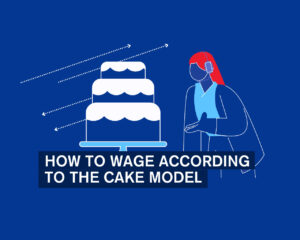The European football competitions are getting a fresh look starting this year. UEFA, the European football governing body, has decided to introduce a new format for the three main European football tournaments—the Champions League, Europa League, and Conference League—beginning in the 2024-2025 season. These reforms are intended to make football more exciting for both fans and clubs. In this article, you’ll find the key changes.
Champions League
The Champions League is arguably the most well-known and important tournament in European club football, and it’s now undergoing one of the most significant changes since its inception in 1992. The tournament will expand from 32 to 36 teams, and the classic group stage format, where eight groups of four teams were drawn, will be replaced by a new ‘Swiss’ system. The term comes from the chess world, and it means that all teams are placed in a single league, without further grouping.
Instead of the traditional six group matches, teams will now play eight matches against eight different opponents. Each opponent will be faced in a single match, which can be either home or away. Opponents will be assigned based on certain schedules, where teams of similar strength will play against each other. After these eight matches, the top 8 teams will qualify directly for the knockout phase, while teams finishing in positions 9 to 24 will play a playoff round to qualify for the remaining spots.
UEFA wanted to implement these changes to make football more exciting and competitive. Under the old system, many teams could secure qualification early in the group stage, making the final matches often less exciting. The new format brings more games between top clubs, with much more at stake, making the competition more thrilling and unpredictable.
Europa League and Conference League
The Europa League and Conference League will also adopt this new format but in a scaled-down version. In the Europa League, the number of teams in the group stage will increase from 32 to 36, with each team playing eight group stage matches. The top 8 teams will advance to the Round of 16, while teams finishing between 9th and 24th place will play a playoff round to secure a spot in the knockout phase.
The same system will apply to the Conference League, but with six group stage matches instead of eight. This makes it more feasible for smaller clubs, which typically participate in UEFA’s third tournament, without overwhelming them with too many games.
Why These Changes?
The driving force behind these changes is not only sporting but also commercial. UEFA is trying to make European competitions more attractive to TV viewers, sponsors, and investors. More matches between top clubs in the early stages of the tournaments are expected to lead to higher viewership ratings. In the Swiss system, teams will play against clubs of similar strength more often, which should result in more engaging matches, even in the early phases of the tournament.
Additionally, UEFA is responding to the growing demand for a European Super League. In April 2021, 12 of Europe’s biggest clubs attempted to launch a separate competition, the so-called Super League, which would have competed with UEFA tournaments. Although this plan was quickly abandoned after massive protests from fans, media, and governments, it highlighted dissatisfaction among top clubs with the existing formats of European competitions. By offering more matches between major clubs, UEFA aims to meet this demand and enhance the appeal of the Champions League.
Criticisms
While the new format seems highly appealing to fans, there are also concerns about the impact on players and clubs. With more group stage matches, the match calendar for top clubs will become even more crowded. This could lead to extra strain on players, who are already dealing with a packed schedule due to domestic leagues, cup tournaments, and international matches.
This extra workload could increase the risk of injuries and reduce player performance, particularly towards the end of the season when the decisive phases of both European and domestic competitions take place. Clubs with larger squads will have an advantage, but smaller clubs may face significant disadvantages as a result.
Magic Betting Live
Want to make these competitions even more exciting? Check out the Magic Betting App or visit the website www.magicbetting.be for the best online sports betting. Be sure to explore the various promotional offers. Try your luck and win!














